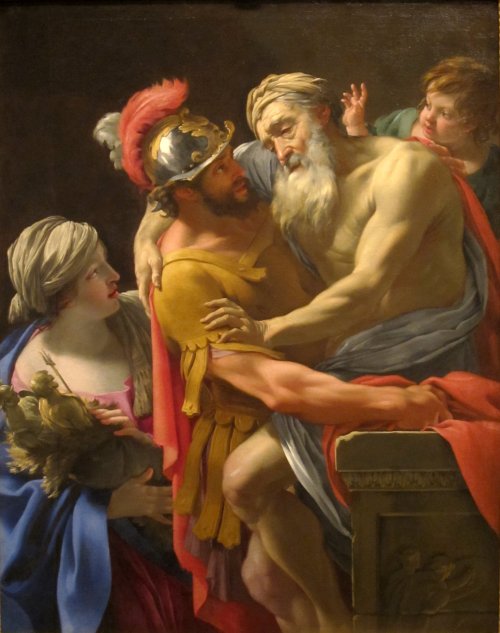#ascanius
Aeneas and His Father Fleeing Troy
Simon Vouet (French; 1590–1649)
ca. 1635
Oil on canvas
San Diego Museum of Art, San Diego, California
Post link
Eastern luxury as a corrupting influence is everywhere in Roman moralizing literature. Livy claims that the moral decline of Rome began in 187 BCE caused by the return of the Roman army from what would become the Roman province of Asia (Western Turkey). Sallust says that Sulla’s return from Asia in 83 BCE had a similar effect.
But I am very keen on amplifying the idea that by locating the foundation story of the Romans in a figure that descends from the east, the seeds of destruction are already sown within the Romans themselves. Thus, at some level, the Augustan cultural project (i.e. Vergil’s Aenied) focuses on returning to the morals of the past while simultaneously creating a narrative that undermines those exact morals.
Or maybe it is not that simple. Maybe it is an attempt to integrate eastern influence as a foundational aspect of what it means to be Roman (how would that sit for a traditionalist?!). Vergil doesn’t shy away from Aeneas’ effeminacy when he makes note of how Aeneas and the Trojans in general are dressed and styled. The offspring of Aeneas and his son Ascanius cannot escape that eastern element when they mix with the native Latins (even though Juno makes it explicit that she wants it eradicated so that none of what is Trojan infects the new mixed race, Aen. 12.820-830). Jupiter responds with commixti corpore tantum subsident Teucri, “The Trojans having been mixed only in body will remain”; a weird way of saying that the only thing Trojan about the resulting mixture will be physical. Thus Romans, according to this narrative, are at some level physically eastern.

